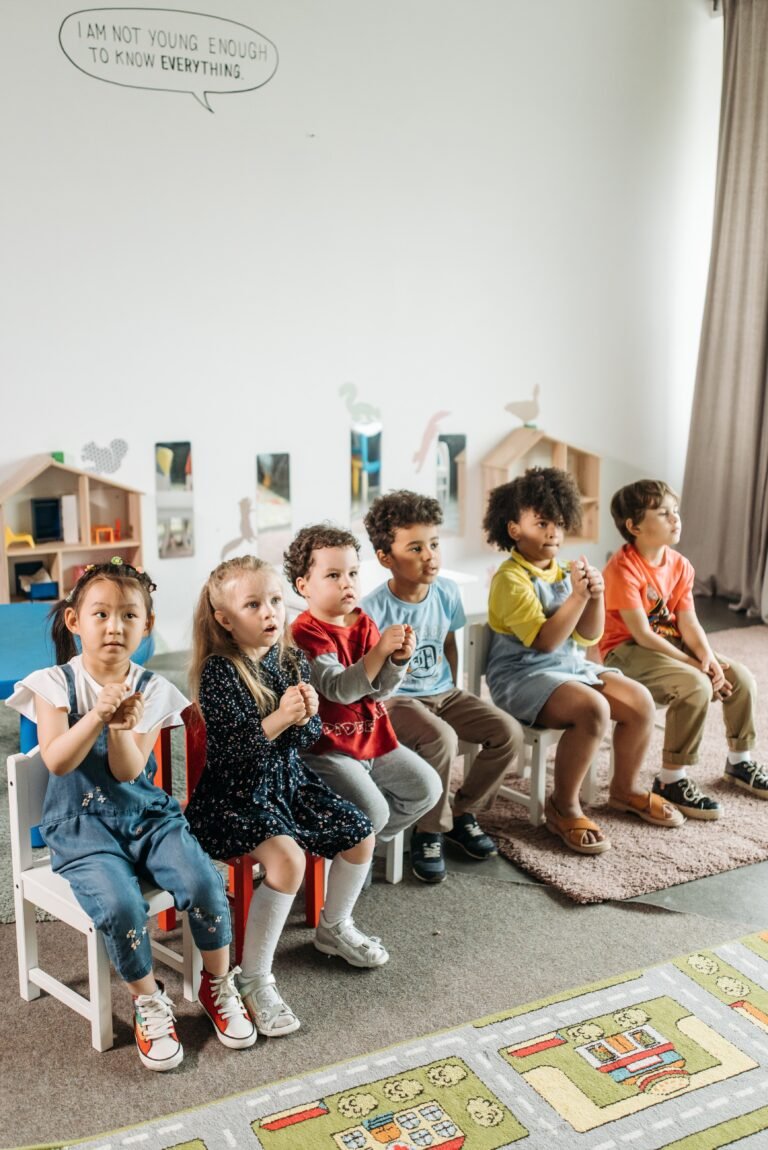4 Habits Of Successful Relationships
In “4 Habits Of Successful Relationships,” you’ll discover the key habits that contribute to the success of relationships, viewed from a Catholic perspective. By exploring these habits, you can gain a deeper understanding of what it takes to build and maintain a strong and fulfilling connection with your partner.
Whether you’re in a romantic relationship or a friendship, these habits can serve as guiding principles for fostering love, growth, and harmony in your relationships. So let’s explore these habits and see how they can transform your connection with others.
Building Trust
Trust is the foundation of any successful relationship. Without trust, it’s difficult to have open and honest communication, demonstrate reliability, and be vulnerable and transparent with one another.
Open and honest communication is crucial for building trust. It involves expressing yourself honestly and openly, without fear of judgment or reprisal. By sharing your thoughts, feelings, and concerns, you create a safe space for both you and your partner to communicate effectively.
Demonstrating reliability is another key aspect of building trust. It means being dependable and following through on your commitments. When you consistently do what you say you will do, it shows your partner that they can rely on you. Reliability helps nurture a sense of security in the relationship, knowing that you can be counted on.
Being vulnerable and transparent is often challenging, but it is essential for building trust. It involves sharing your fears, insecurities, and past experiences with your partner. This vulnerability allows you to be seen for who you truly are and fosters a deeper connection.
Transparency goes hand in hand with vulnerability, as it involves being open and honest about your thoughts, feelings, and actions. When you are transparent, you build trust by showing your partner that you have nothing to hide.
Effective Communication
Communication is the lifeblood of any relationship. It helps deepen understanding, resolve conflicts, and strengthen the bond between partners. Active listening is a vital skill in effective communication.
It requires giving your full attention to your partner and genuinely seeking to understand their perspective. By actively listening, you can develop a deeper connection and create an environment where both of you feel heard and valued.
Empathy and understanding are critical components of effective communication. By putting yourself in your partner’s shoes and trying to understand their emotions and experiences, you can foster empathy and create a sense of emotional connectedness.
Empathy helps you respond to your partner’s needs with compassion and understanding, strengthening the bond between you.
Respectful and constructive dialogue is essential for maintaining effective communication. It involves expressing your thoughts and feelings in a way that is considerate and mindful of your partner’s emotions.
By avoiding blame and criticism, you create an atmosphere of respect and encourage open and honest communication. Constructive dialogue allows both you and your partner to address concerns and solve problems together.
Shared Values and Goals

Shared values and goals are the glue that holds a relationship together. When you have common beliefs and morals, it creates a strong foundation for the relationship. Shared values provide a framework for decision-making and guide your actions and behaviors.
It allows both you and your partner to navigate life’s challenges and make choices that align with your shared principles.
Having compatible life plans is also crucial to a successful relationship. It involves envisioning your future together and working towards common goals.
When your life plans are aligned, you can support and motivate each other to achieve the visions you have set for yourselves. Sharing similar life plans helps create a sense of unity and purpose within the relationship.
Supporting each other’s individual aspirations is equally important in a relationship. It involves recognizing and encouraging your partner’s individual dreams and ambitions.
By supporting their personal growth and aspirations, you foster a sense of trust and commitment. Being there for your partner’s successes and challenges helps create a supportive and nurturing environment.
Emotional Support
Providing emotional support is a crucial aspect of maintaining a healthy and fulfilling relationship. Empathy and compassion play a significant role in offering emotional support.
By understanding and sharing your partner’s emotions, you can offer comfort and reassurance. Showing genuine concern and compassion strengthens the emotional bond between you and creates a sense of safety within the relationship.
Providing comfort and reassurance is another way to offer emotional support. It involves being available when your partner is going through challenging times and offering them solace.
It could be as simple as lending a listening ear, offering a hug, or providing words of encouragement. Comfort and reassurance show your partner that you are there for them, no matter what, and that they can rely on you for support.
Being present and attentive in the relationship is essential for emotional support. It means being fully engaged and actively participating in your partner’s life.
By paying attention to their needs, celebrating their successes, and acknowledging their struggles, you create a strong sense of emotional connection. Being present and attentive shows your partner that they are valued and loved.
Quality Time
Quality time is an essential ingredient in maintaining a strong and healthy relationship. It involves prioritizing each other and making time for meaningful activities. Prioritizing each other means putting your partner’s needs and desires at the forefront.
By making your partner a priority, you demonstrate your commitment to the relationship and create a sense of security.
Engaging in meaningful activities deepens the bond between partners. Whether it’s engaging in shared hobbies, going on adventures, or simply spending quality time together, these activities create lasting memories and strengthen the emotional connection.
Quality time allows you to nurture the relationship, create shared experiences, and foster a sense of togetherness.
Maintaining intimacy and romance is also crucial in a relationship. It involves nurturing the physical and emotional connection between partners. By prioritizing intimacy and engaging in acts of romance, you keep the spark alive.
It could be through affectionate gestures, surprise date nights, or expressing your love through words and actions. Maintaining intimacy and romance strengthens the emotional bond and keeps the relationship thriving.
Resolving Conflicts

Conflict is a natural part of any relationship, but how you handle conflicts can make or break the relationship. Constructive conflict resolution is key to maintaining a healthy relationship.
It involves addressing conflicts in a respectful and constructive manner. By focusing on finding solutions rather than blaming each other, you foster an atmosphere of collaboration and problem-solving.
Compromise and collaboration are crucial in resolving conflicts. It requires both partners to actively listen, understand each other’s perspectives, and work together towards a mutually beneficial solution.
By finding a middle ground and considering each other’s needs, you strengthen the relationship and build trust. Compromise and collaboration show your partner that their opinions and desires are valued.
Avoiding escalation and blame is vital in conflict resolution. It involves maintaining a calm and respectful demeanor during conflicts and refraining from attacking or belittling each other.
By practicing self-control and focusing on finding solutions, you create a safe environment for open communication. Avoiding escalation and blame helps maintain a sense of trust and respect within the relationship.
Showing Appreciation
Showing appreciation is a powerful way to nurture a successful relationship. Expressing gratitude and thankfulness is an essential part of showing appreciation.
By acknowledging and expressing gratitude for the little things your partner does, you create a positive and supportive atmosphere. Gratitude fosters feelings of love, respect, and happiness within the relationship.
Small gestures of kindness also play a significant role in showing appreciation. It involves doing small acts of kindness to show your partner that you care.
It could be as simple as preparing their favorite meal, leaving them a heartfelt note, or surprising them with a thoughtful gift. Small gestures of kindness demonstrate your love and appreciation and reinforce the bond between you.
Celebrating achievements, both big and small, is another way to show appreciation. By acknowledging and celebrating your partner’s accomplishments, you create a sense of pride and support within the relationship.
Celebrating achievements together strengthens the emotional connection, encourages growth, and shows your partner that you are their biggest cheerleader.
Continuous Growth and Learning

A successful relationship requires continuous growth and learning. Self-reflection and personal development are essential for individual growth. By taking the time to reflect on your own thoughts, behaviors, and emotions, you can become more self-aware and identify areas for improvement.
Personal development allows you to bring your best self to the relationship and fosters personal growth for both partners.
Supporting each other’s growth is equally important in a relationship. It involves encouraging and motivating your partner to pursue their passions and aspirations.
By offering support, providing resources, and being a source of inspiration, you create an environment that encourages personal and shared growth. Supporting each other’s growth strengthens the relationship and helps both partners reach their full potential.
Adapting to change and challenges is essential in maintaining a successful relationship. Life is full of unexpected twists and turns, and being willing to adapt is crucial for a thriving relationship.
By embracing change and challenges together, you can navigate rough waters and grow closer as a couple. Adapting to change and challenges fosters resilience and helps the relationship weather any storm.
Balancing Independence and Togetherness
Finding the balance between independence and togetherness is crucial for a harmonious relationship. Maintaining individual identities is an essential aspect of this balance.
It involves recognizing and respecting each other’s unique qualities, interests, and ambitions. By maintaining individual identities, you can bring a sense of fulfillment and richness to the relationship.
Respecting personal boundaries is another crucial factor in balancing independence and togetherness. It involves understanding and honoring each other’s need for personal space, alone time, and privacy.
By respecting personal boundaries, you create a healthy and secure environment that allows each partner to recharge and grow individually.
Nurturing the relationship is equally important in finding this balance. It involves investing time and effort into strengthening the emotional connection and building shared experiences.
By nurturing the relationship, you create a sense of togetherness and foster a deep bond. Balancing independence and togetherness ensures that the relationship flourishes while allowing each partner to maintain their individuality.
Respecting Differences
Respecting differences is essential in building a successful relationship. Appreciating diversity is a crucial aspect of respecting differences. It involves recognizing and valuing each other’s unique qualities, experiences, and perspectives.
By appreciating diversity, you create an inclusive and accepting environment that allows for growth and understanding.
Understanding individual perspectives is also key to respecting differences. It involves being open-minded and willing to consider your partner’s point of view, even if it differs from your own.
By seeking to understand their perspectives, you foster empathy and strengthen the connection. Understanding individual perspectives promotes healthy discussions and encourages personal and relational growth.
Valuing each other’s opinions plays a significant role in respecting differences. It involves acknowledging and respecting your partner’s thoughts, feelings, and decisions.
By creating a space where both opinions are valued, you build trust and mutual respect. Valuing each other’s opinions creates a sense of equality and fosters a harmonious relationship.
In conclusion, successful relationships are built on a foundation of trust, effective communication, shared values and goals, emotional support, quality time, conflict resolution, appreciation, continuous growth and learning, balancing independence and togetherness, and respecting differences.
By consciously practicing these habits, you can create a fulfilling and thriving relationship that stands the test of time. Remember, relationships require effort and commitment, but the rewards are immeasurable.






